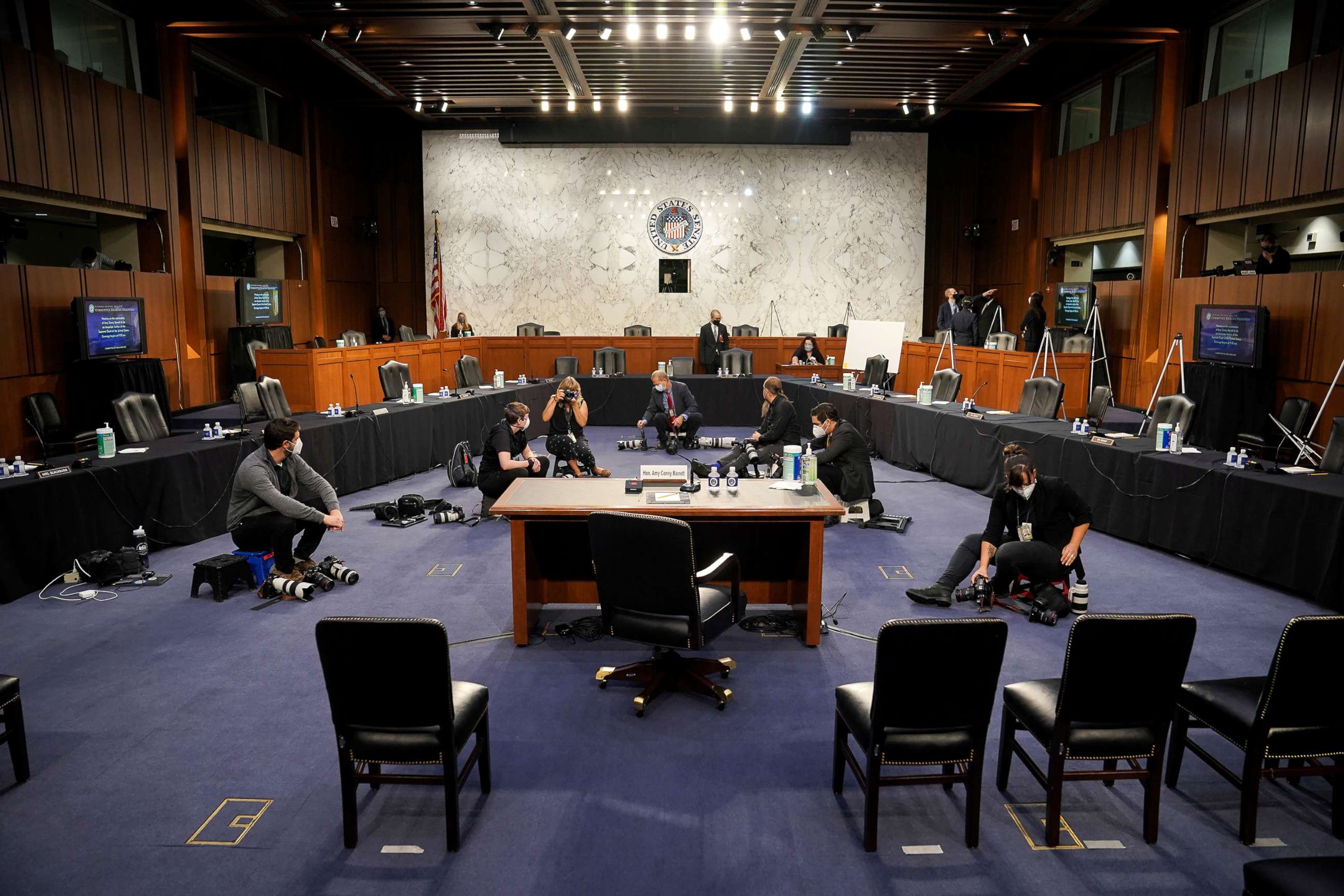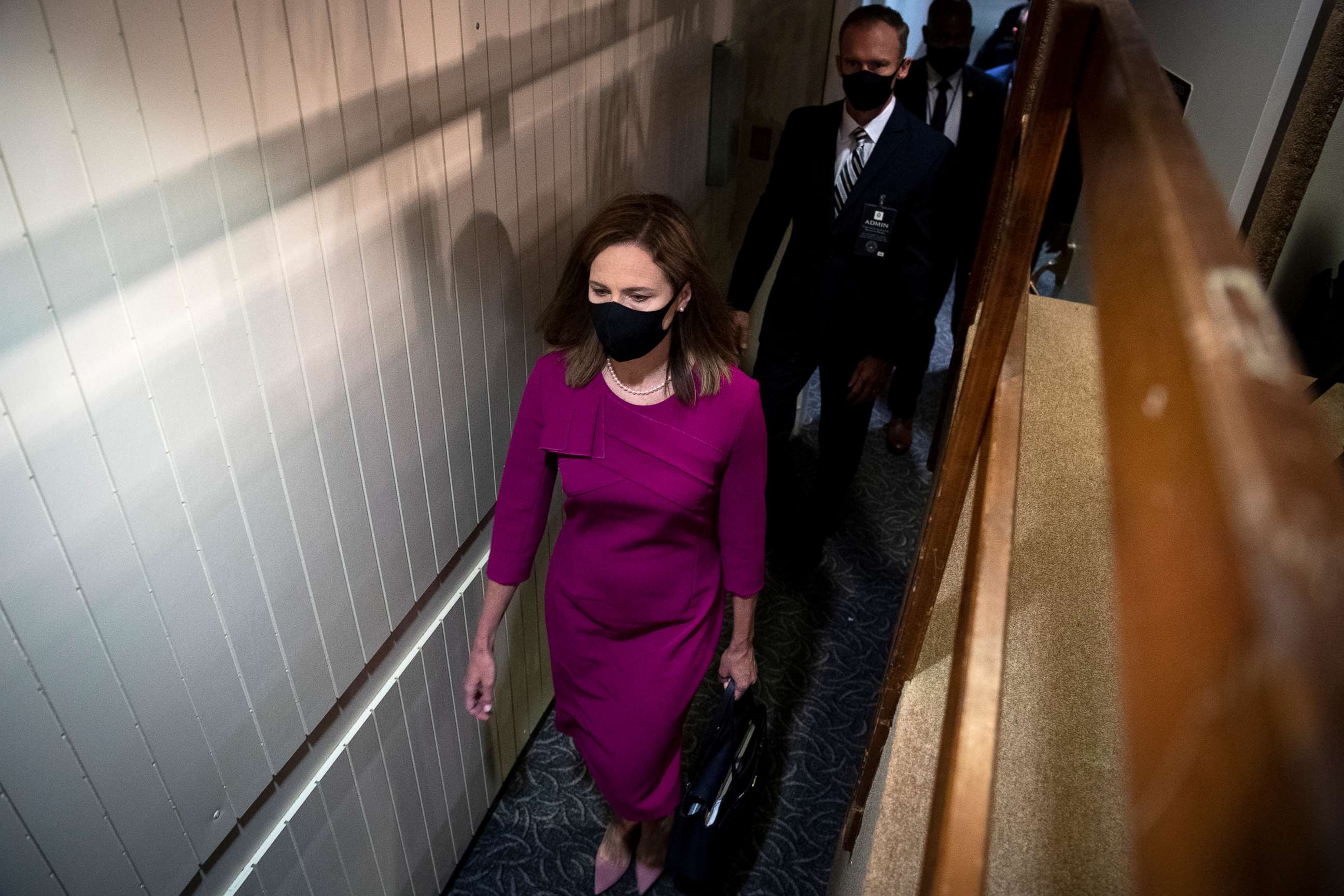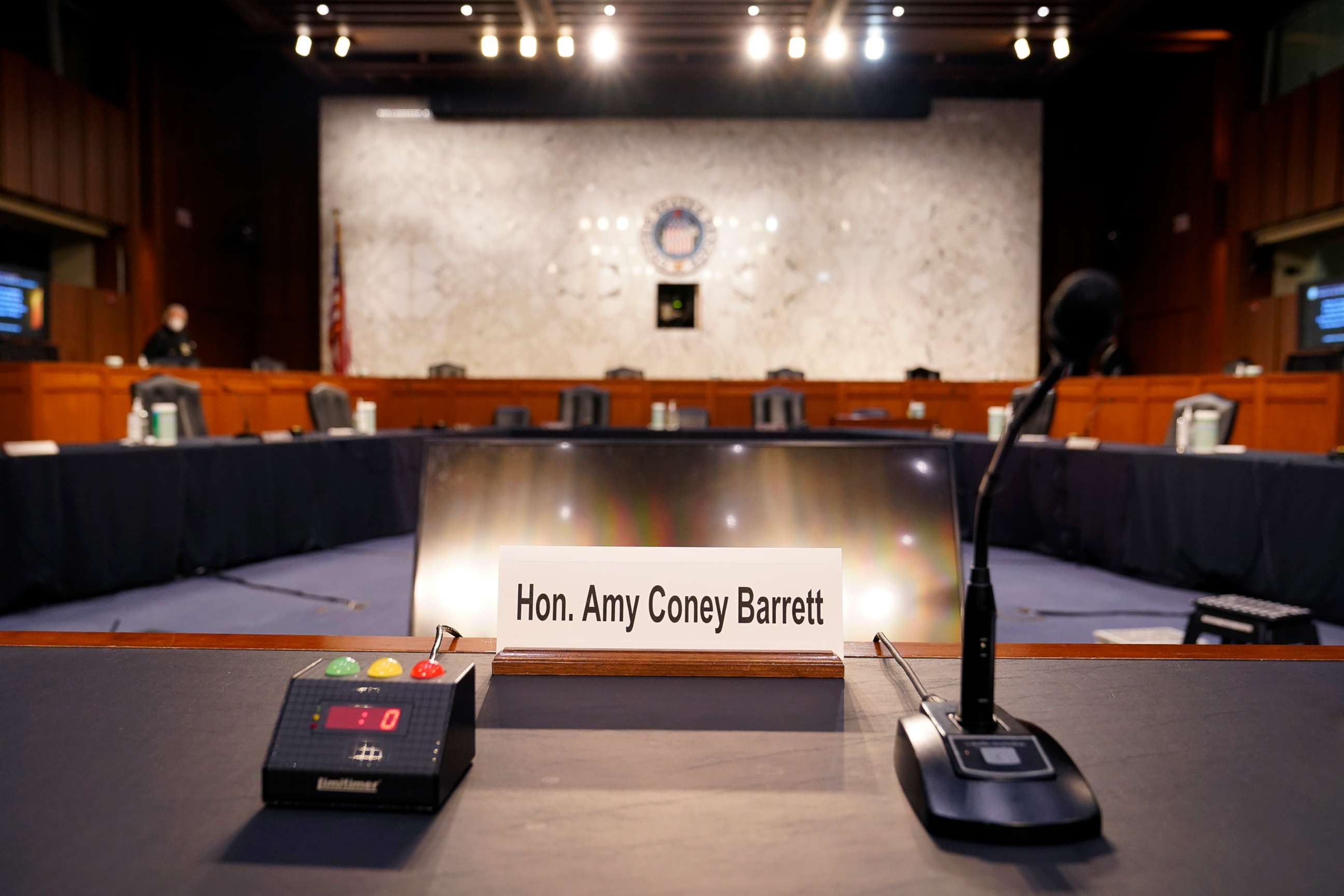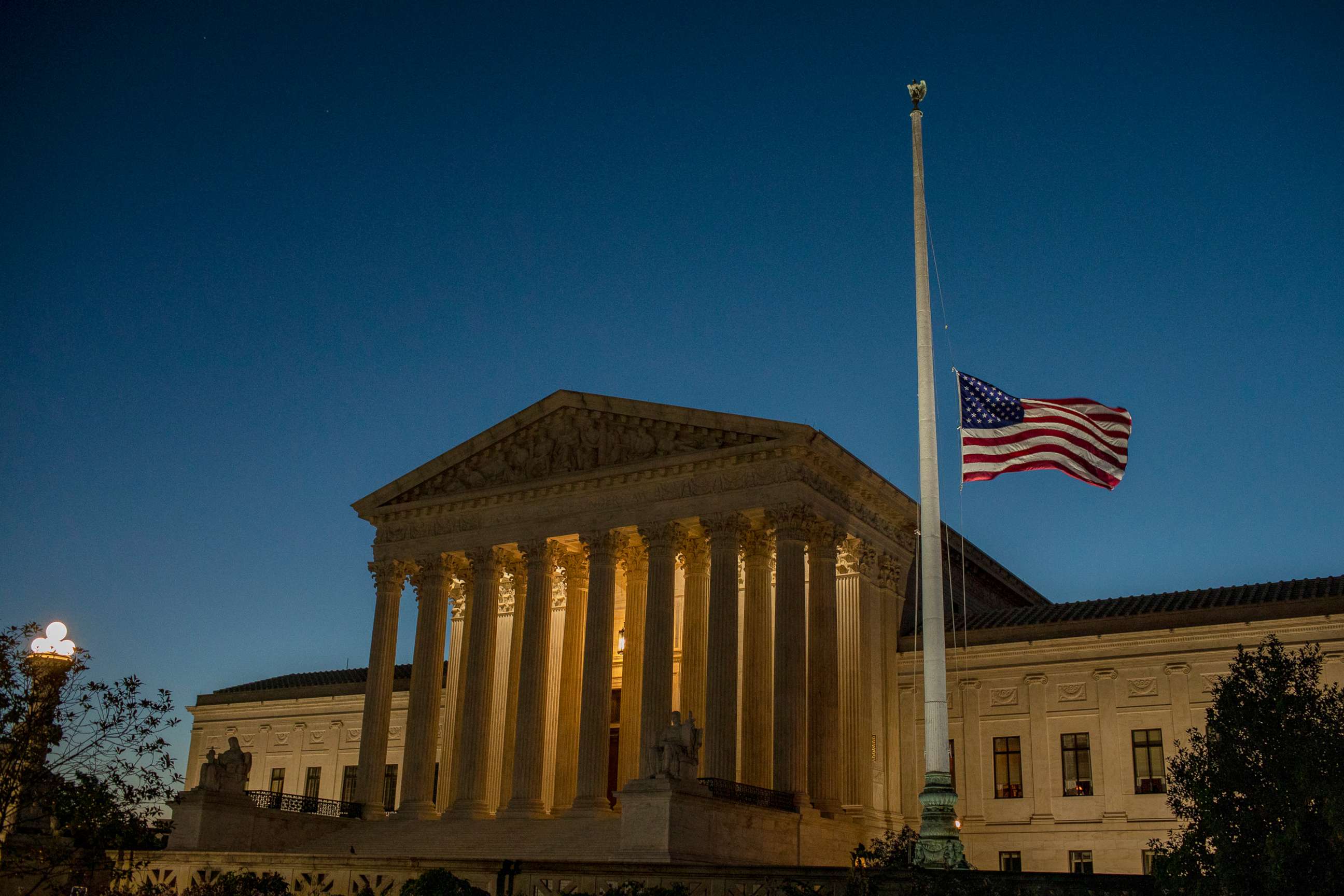Graham, in opening statement, appeals to bipartisan support but says GOP has the votes
Graham began his opening statement by reminding his colleagues of the bipartisan Senate support for both the Justice Ruth Bader Ginsburg and Justice Antonin Scalia nominations.
“I don't know what happened between then and now. I guess we can all take some blame,” Graham said. “But I just want to remind everybody, there was a time, in this country, where someone like Ruth Bader Ginsburg was seen by almost everybody as qualified for the position of being on the Supreme Court.”
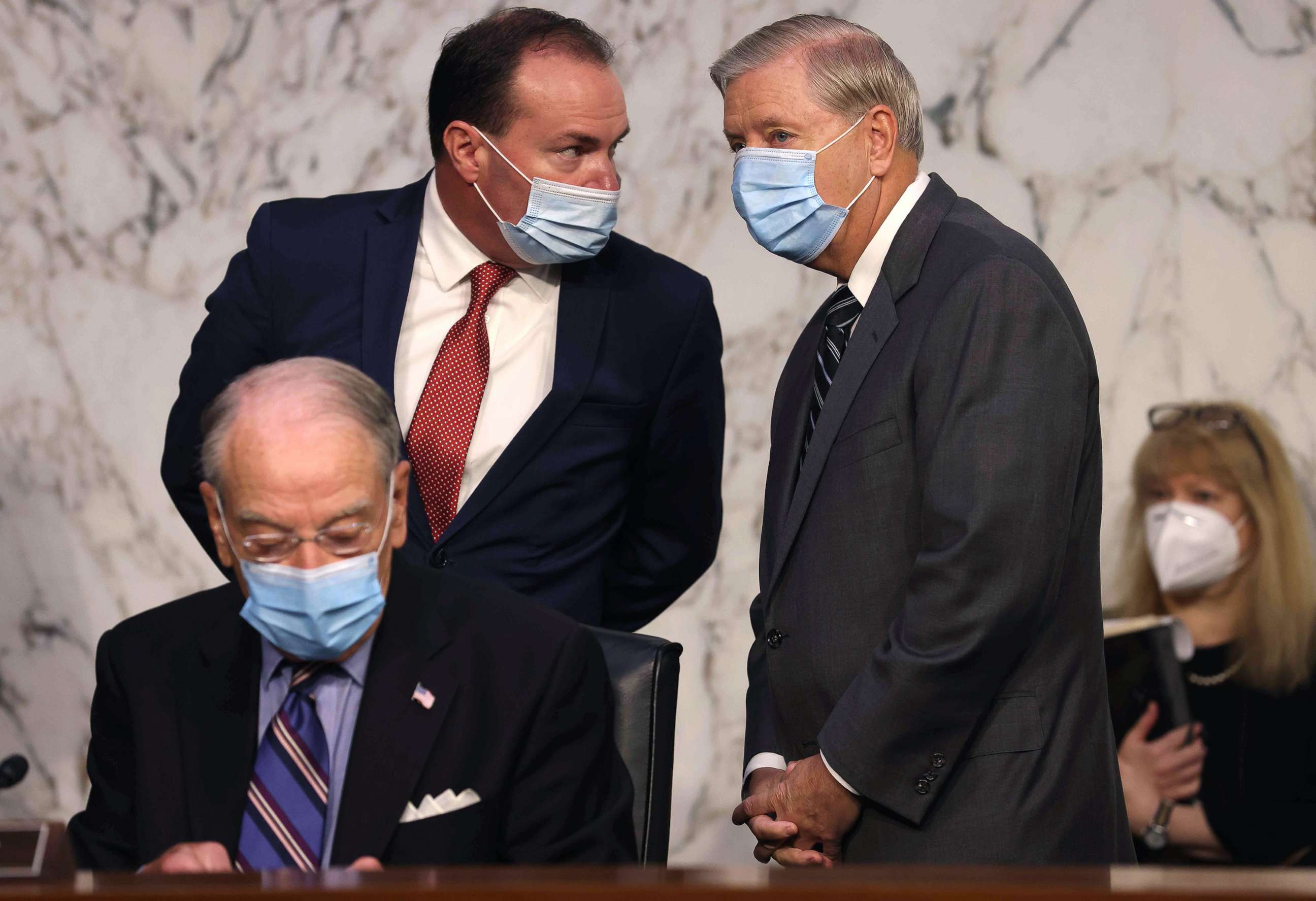
After he ticked through a list of Judge Barrett’s qualifications, he addressed the matter of the confirmation vote arising in an election year -- a point of contention with Democrats as Republicans prevented a hearing and vote on former President Barack Obama's nomination of Judge Merrick Garland in 2016.
“We're confirming the judge in an election year after the voting has occurred. What will happen is that my Democratic colleagues will say this has never been done and they're right in this regard, I don't think anybody has been confirmed in an election year past July,” Graham said, before getting to what he called his "bottom line."
“The bottom line here is that the Senate is doing its duty constitutionally,” he said. “As to Judge Garland, the opening that occurred with the passing of Justice Scalia, was in the early part of an election year. The primary process had just started.”
Graham also said the hearing will likely not change Barrett's path to the court, noting that Republicans have the votes.
“This is probably not about persuading each other, unless something really dramatic happens. All Republicans will vote yes, and all Democrats will vote no. And that will be the way the breakout of the vote, but the hearing is a chance for Democrats to dig deep into her philosophy, appropriately ask her about the law, somehow she would be different, what's on her mind,” he said.
